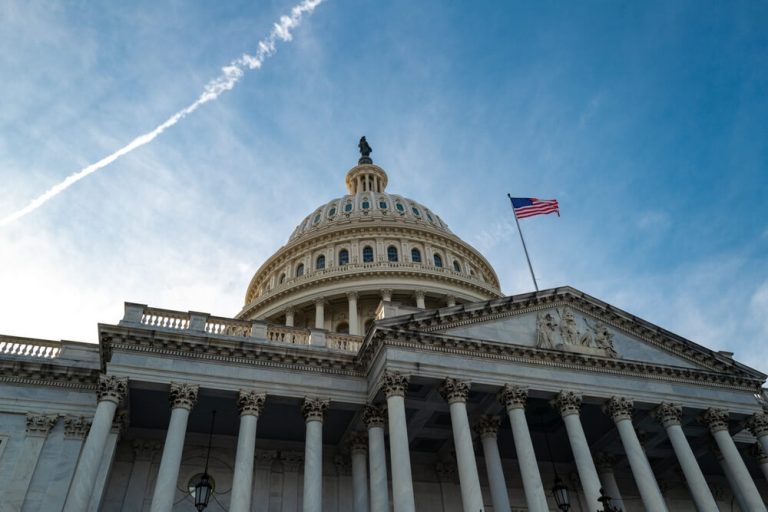In the March 2022 edition of The ICR D.C. Insider, we share our insights and analysis about developments in Washington that could have an immediate and long-term impact on your business.
Russian Sanctions: The U.S. continue to ratchet-up its sanctions on Russia in response to its invasion of Ukraine, banning all imports of Russian oil, natural gas, and coal (the ban goes into effect after 45 days). The White House also announced that it will move to revoke Russia’s “most favored nation” trade status in coordination with the European Union and the Group of Seven countries, meaning those nations can raise tariffs on Russian imports to further inflict economic damage in retaliation for the invasion. President Biden also noted that the U.S. is taking steps to ban imports of Russian vodka, seafood, and diamonds. Congress is pursuing additional legislation that would in part direct the U.S. trade representative to “use the voice and influence” of the U.S. to push for Russia to be suspended from the World Trade Organization (WTO). Along with its NATO allies, the U.S. has severely curtailed Russia’s ability to use the global SWIFT banking and payments system and to prevent Russia’s central bank from deploying its reserves that could otherwise be used to help stabilize the country’s currency.
Cyber Threats: The Department of Homeland Security’s Cybersecurity & Infrastructure Security Agency (CISA) issued a stark warning to boards of directors and corporate leaders: “We are mindful of the potential for the Russian government to escalate its actions in ways that may impact businesses both within and beyond the region, particularly in the wake of sanctions imposed by the United States and our Allies.” The agency articulated a series of proactive steps companies of all sizes should undertake to protect and prepare themselves and noted the launch of CISA’s “Shields Up” website that includes actionable information – including a list of 90-plus previously exploited vulnerabilities – that organizations can use to help ensure their security and resilience from cyber threats.
Cyber Incident Disclosure: The Securities and Exchange Commission (SEC) has proposed amendments to its rules to enhance and standardize disclosures regarding cybersecurity risk management, strategy, governance, and incident reporting by public companies – with an SEC spokesperson noting that the crisis in the Ukraine had given this issuance “special relevance.” Among other things, the proposed rules call for “material” incidents to be reported on Form 8-K within four business days of the incident. Additionally, the proposal also would require periodic reporting about a company’s policies and procedures to identify and manage cybersecurity risks; its board of directors’ oversight of cybersecurity risk; and management’s role and expertise in assessing and managing cybersecurity risk and implementing cybersecurity policies and procedures. The proposal further would require annual reporting or certain proxy disclosure about the board of directors’ cybersecurity expertise, if any. The public comment period will remain open for 60 days following publication of the proposing release on the SEC’s website or 30 days following publication of the proposing release in The Federal Register, whichever period is longer.
Cryptocurrencies: As Washington continues to grapple with the issues across cryptocurrencies (accelerated by fears that Russian banks and oligarchs could use crypto to avoid sanctions), President Biden signed a Presidential Executive Order to marshal resources across the federal government to develop a sweeping plan to oversee and regulate cryptocurrencies, evaluate whether the U.S. should issue a fully virtual version of the U.S. dollar, and study the environmental impact of crypto mining. Biden’s order sets various response deadlines, the longest an 180-day deadline, for a series of reports on “the future of money” and the role that cryptocurrencies will play in the evolving landscape. Efforts in Congress to establish a cryptocurrency regulatory framework continue as well, with Rep. Josh Gottheimer (D-NJ), the co-chair of the bipartisan House Problem Solvers Caucus having released legislation providing for a framework for stablecoin regulation. The legislation would limit stablecoin issuance to banks as well as “qualified” nonbanks. Importantly, key regulators – the Securities and Exchange Commission (SEC) and the Commodity Futures Trading Commission (CFTC) among them – are actively making the case that each one of them should take the lead role regulating crypto. Complicating this question further is that fact that each agency is overseen by different congressional committees – and each one of them favors the regulator they oversee for the primary supervisory role.
Federal Budget: Congress passed a $1.5 trillion spending package that will fund the federal government through September 2022, delivers $14 billion to help Ukraine, and ensures there will be no government shutdown. President Joe Biden is expected to sign the bill on Friday, March 11th. The 2,700-page bill will substantially boost funding for the military and nearly every non-defense agency, growing domestic spending to $730 billion, an almost 7 percent increase. The national defense budget would increase about 6 percent to $782 billion.
Steps Toward Changing The Accredited Investor Definition: The SEC continues to explore changes to the definition of “Accredited Investor,” and thereby who can invest in private securities offerings without the need for the offering company to fully register its securities with the Commission, as they would otherwise have to do with the sale of stock to the public at large. Competing views on the ideal financial thresholds for the new standard are evident in remarks by Chair Gary Gensler and Commissioner Hester Pierce.
Short Selling Disclosure Rules Change Advances: Additionally, the SEC voted unanimously to propose changes that would significantly expand the information that is available to the marketplace about the short positions held by institutional investors. The new rules, which have been issued for public comment, would apply to institutional managers who hold a short position of at least $10 million or the equivalent of 2.5% or more of the total shares outstanding, or who hold, in an equity security of a non-reporting issuer, a short position of at least $500,000. The new data being sought through these rules would supplement the short interest data that is currently available, providing the public and market participants with more visibility into the behavior of large short sellers. SEC Chair Gary Gensler noted the value of these proposed rules, saying “Given past market events, it’s important for the public and the Commission to know more about this important market, especially in times of stress or volatility. The proposed rule would help the Commission address future market events, striking a balance between the need for transparency and the price discovery process.”
Defining What Is & What Isn’t An ESG Fund: SEC Chair Gensler is advocating for new standards to define the requirements for a mutual, hedge, credit, private equity, or venture capital fund to label itself “ESG.” Rachel Robasciotti, the manager of the Adasina Social Justice All Cap Global exchange-traded fund, told the NYT’s DealBook: “There are absolutely some funds that are just putting on the veneer of social responsibility.”
SEC’s Climate Disclosure Policy: The SEC is also expected to begin the process of rolling out its long-awaited rule governing how publicly traded companies must disclose their risks from climate change as soon as Wednesday, March 9th, Politico reports. Two major issues have bedeviled the SEC decision. One is how to handle “Scope 3” emissions – meaning those associated with the end-use of a product, such as emissions from gasoline rather than emissions from extracting oil. The other is how to assess materiality, which roughly means issues a reasonable investor would want to know that could affect a company’s bottom line. One person familiar with the Commission’s thinking said Scope 3 is likely to be phased in at a later date given concerns about accounting methodology. That’s a sizable blow for climate advocates who contend omitting Scope 3 would let some of the biggest contributors to climate change, like oil companies and banks, off the hook for a majority of the planet-heating emissions attributed to them.
Federal Supply Chain Investigation: The Federal Trade Commission (FTC) has extended the deadline to March 14th for comments from, among others, retailers, consumer goods suppliers, wholesalers, and consumers regarding their views on how supply chain issues are affecting competition in consumer goods markets. These comments provide an opportunity for market participants to surface additional issues and examples of how supply chain disruptions are affecting competition. The FTC’s November 2021 announcement of its order launching this effort summarized their focus on nine large retailers, wholesalers, and consumer good suppliers and was headlined: “FTC Launches Inquiry into Supply Chain Disruptions: Orders Walmart, Amazon, Kroger and other large wholesalers and suppliers to turn over information to help study causes of empty shelves and sky-high prices.”
Back To The Office: President Biden’s announcement in his State of the Union address that he has accelerated the return of the federal workforce to their offices is a key part of his Administration’s effort to encourage private sector employers to do likewise. Axios quoted a Biden Administration official making the point that “Covid should no longer determine where people are working.” Along with the CDC’s recent loosening of mask requirements, businesses that rely on federal guidelines to determine their back-to-work policies will continue to have to be nimble and adjust their requirements accordingly.
The ICR team is available to offer additional insights on these, and other regulatory and legislative developments, and strategize on company-specific recommendations for engagement and preparation.



